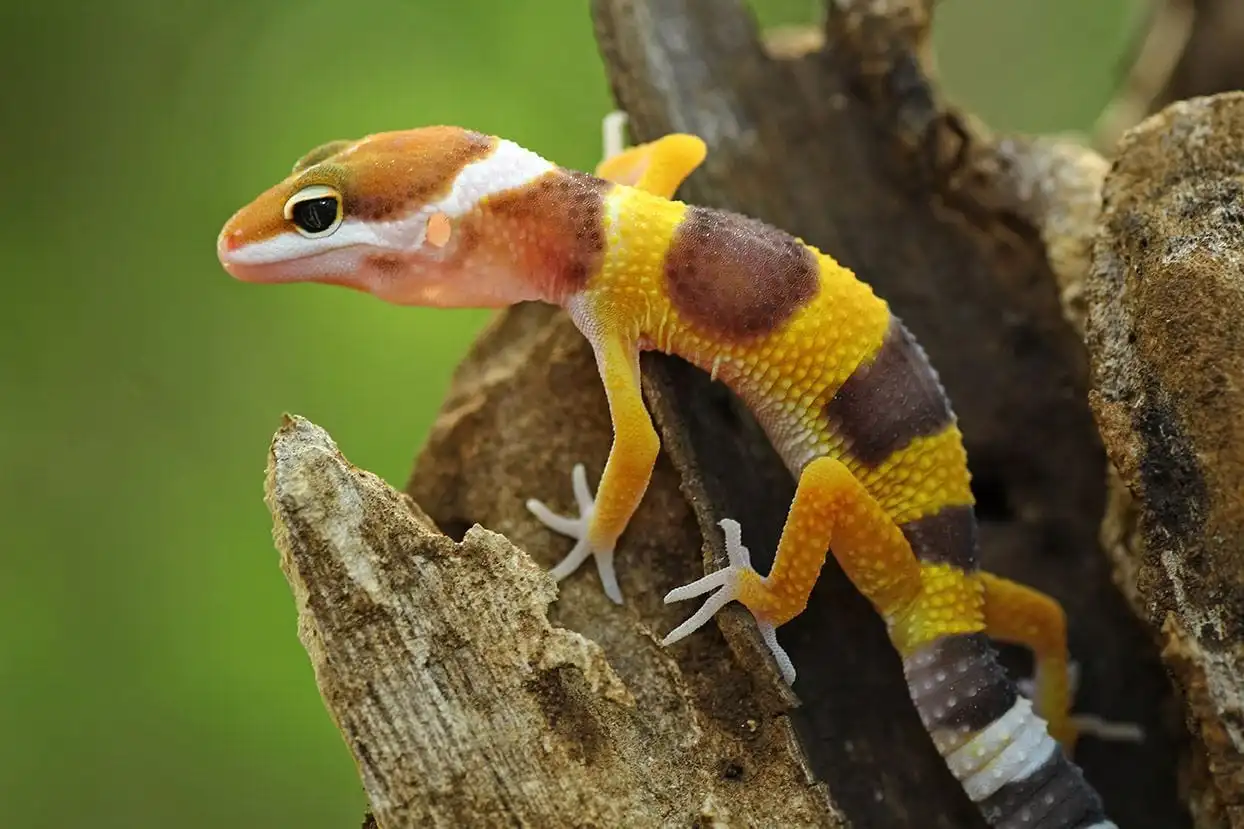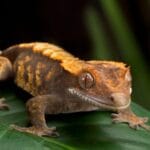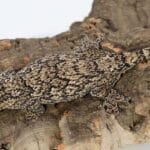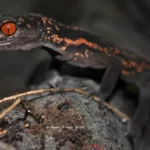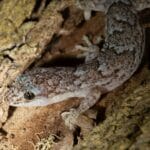Congratulations on welcoming a baby gecko into your life! These captivating creatures are as fascinating as they are delicate, especially when it comes to their dietary needs. This comprehensive guide equips you with the knowledge to nourish your tiny reptile, ensuring a healthy and thriving start to life.
What Do Baby Geckos Eat?
Baby geckos, with their big appetites and even bigger personalities, thrive on a diverse diet that replicates their natural feeding habits. As omnivores, they require a balanced blend of protein-rich insects and nutrient-packed fruits and vegetables.
The Main Course: Insects Your Gecko Will Gobble Up!
In the wild, geckos are skilled hunters, and replicating this instinct in captivity is crucial for their well-being. Offer a variety of appropriately sized insects:
- Mealworms: A staple insect choice, these are rich in protein and fat.
- Crickets: These hopping treats provide a good source of hydration.
- Dubia Roaches: These roaches are packed with essential nutrients and low in fat.
Pro Tip: Enhance the nutritional value of insects by “gut loading” them—feeding them a nutritious diet before offering them to your gecko.
Sweet Treats: Fruits for a Healthy Gecko Smile
Fruits add valuable vitamins and minerals to your gecko’s diet but should be given in moderation. Consider offering small amounts of:
- Mashed Bananas: A gecko favorite, bananas are rich in potassium and easy to digest.
- Papayas: This tropical fruit is high in vitamins A and C.
Important: Mix fruits with water to create a puree that’s easier for your gecko to consume.
The Easy Button: Commercial Food Options
For busy gecko parents, commercial food options provide a convenient way to supplement a varied diet.
- Crested Gecko Diet: This specialized formula is tailored to the unique nutritional needs of crested geckos.
- Moist Baby Food: Ensure it’s gecko-safe and check the ingredients for added sugar or preservatives.
How Often Should You Feed a Baby Gecko?
Baby geckos are growing rapidly and require daily feedings. As they mature, you can gradually transition to feeding them every other day.
Extra Important Stuff: Vitamins and Water
- Calcium and Vitamin D3: These are crucial for strong bones and overall health. Dust your gecko’s food with a calcium and vitamin D3 supplement.
- Fresh Water: Always provide a shallow dish of fresh, clean water for your gecko to drink from.
What Do Baby Geckos Eat in the Wild?
In their natural habitat, baby geckos are miniature predators, skillfully hunting down small insects and invertebrates. Their diet consists of:
- Tiny Crickets
- Small Spiders
- Insect Larvae
- Other Invertebrates
This insect-rich diet provides them with the essential nutrients needed for growth and survival in the wild.
Essential Nutrients for Baby Gecko Growth
Just like any growing creature, baby geckos require a balanced diet to thrive. Here’s a breakdown of the essential nutrients they need:
- Protein: The building blocks for muscle growth and repair.
- Fat: Provides energy and aids in nutrient absorption.
- Vitamins and Minerals: Essential for various bodily functions, from immune support to bone health.
- Carbohydrates: Provide a quick source of energy.
The Gecko Grocery List: Foods Your Little One Will Love
- Live Insects: Crickets, mealworms, fruit flies, silkworms, and appropriately sized roaches are all excellent choices.
- Soft Fruits: Offer small pieces of berries, bananas, or papaya.
- Nectar: You can find special gecko nectar or offer a tiny bit of diluted fruit juice (no sugar added!).
Feeding Time: How Much and How Often?
- Feed baby geckos live insects 2-3 times a day.
- The number of insects per feeding will vary based on the gecko’s size and appetite.
- Soft fruits and nectar can be offered a couple of times a week as treats.
A Few Extra Tips for Happy Gecko Tummies:
- Variety is Key: Offer a variety of insects to ensure a balanced intake of nutrients.
- Supplement Savvy: Use a calcium and vitamin D3 supplement to ensure proper bone health.
- Safe Handling: Handle your gecko gently, especially during feeding time, to avoid stress.
Best Insects to Feed Your Baby Gecko
Choosing the right insects is crucial for your baby gecko’s health and well-being.
| Insect | Good for Baby Geckos? | Notes |
|---|---|---|
| Crickets | Yes | Easy to digest, good source of protein. |
| Fruit Flies | Yes | Small and easy to catch, perfect for hatchlings. |
| Mealworms | Yes | High in protein and fat, good for growth. Chop if needed. |
| Superworms | Yes | High in protein and calcium, chop before feeding. |
| Roaches | Yes | Nutritious, but make sure they are appropriately sized. |
| Waxworms | Treat Only | High in fat, feed sparingly. |
Remember to gut-load insects with nutritious food before offering them to your gecko. This enhances their nutritional value and provides your gecko with additional vitamins and minerals.
By following these feeding guidelines and providing a stimulating environment, you’ll ensure that your baby gecko flourishes under your care.
If you’d like to learn more about how marbled gecko [are] beneficial to their environment, then click on the link.
There are numerous types of geckos in Florida, and you can learn more about them by following the provided link.
- Mastering Leader in Spanish: The Complete Guide - April 19, 2025
- Uncovering Surprising Parallels: England Size Compared to US States - April 19, 2025
- Old Mexico Map: Border Shifts 1821-1857 - April 19, 2025
